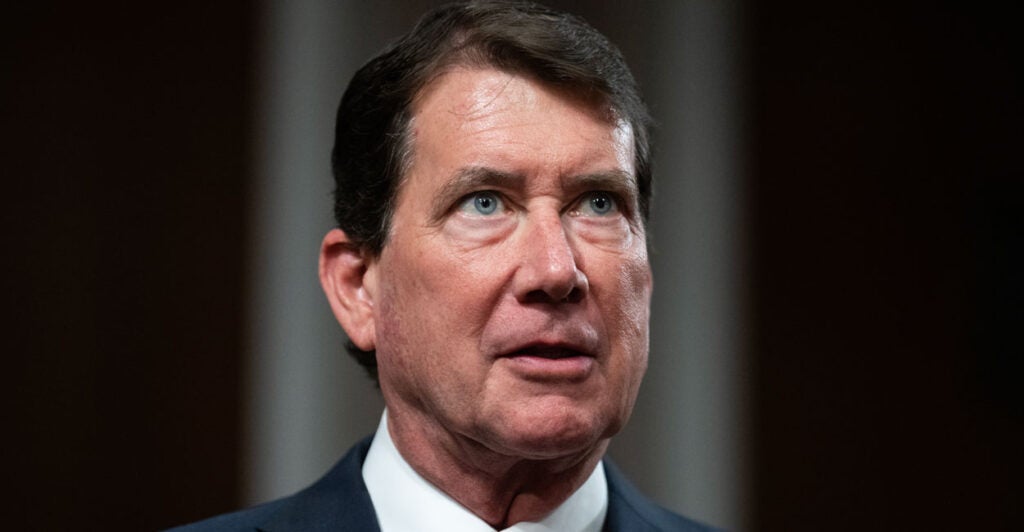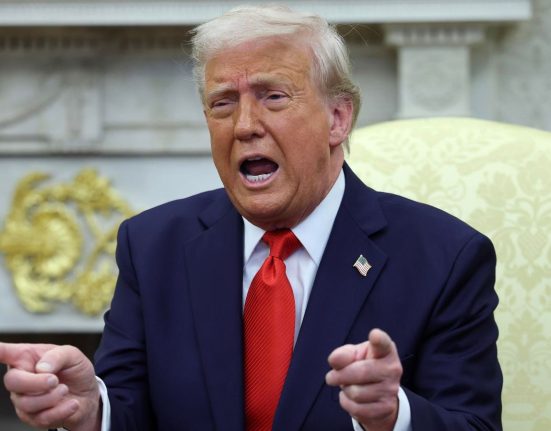Crypto is taking over Capitol Hill.
President Donald Trump has repeatedly underlined a friendly regulatory regime for cryptocurrency as a legislative priority, and his administration’s preferred deadline for Congress to act is fast approaching.
Early on in Trump’s second term, the administration set the August recess as a deadline for Congress to standardize regulations for stablecoins, a growing cryptocurrency market.
Sen. Tim Scott, R-S.C., who chairs the Senate Banking Committee, recently suggested pushing back that date to Sept. 30.
A stablecoin is a cryptocurrency that is pegged to another store of value—meaning, in theory, one could exchange the stablecoin for that other commodity.
The American stablecoin market has been plagued by false promises made by sellers about dollar reserves that are, in reality, insufficient.
For example, Tether, a stablecoin, and Bitfinex, a cryptocurrency exchange, were fined a total of $42.5 million in 2021, partly “for making untrue or misleading statements” about the reserves behind their currencies.
With the Senate’s recently passed GENIUS Act, crypto-friendly congressmen are hoping to promote the dollar-backed stablecoin market by providing a stable regulatory environment that discourages fraud and simplifies compliance.
The idea is that, by requiring adequate dollar reserves and granting this market the legitimacy that federal regulation provides, purchases of U.S. Treasury bills would increase, which could in turn drive down interest rates and strengthen the dollar.
“The stablecoin legislation requires that each dollar stablecoin be backed fully by either a dollar in cash or short-term treasuries. To do that, the stablecoin issuer has to go and purchase short-term treasuries,” said Sen. Bill Hagerty, R-Tenn., a Senate sponsor.
Boosting the dollar’s value is at the center of the White House’s sales pitch for the bill as well.
“We view [stablecoins] as a force multiplier of our economic might,” Vice President JD Vance said at the Bitcoin 2025 Conference in May. “Dollar-pegged stablecoins, particularly once GENIUS is enacted, is only going to help the American economy, and it’s only going to help the American dollar.”
But the bill might change once it comes over to the House. In a June appearance at the Brookings Institution, Rep. French Hill, R-Ark., who chairs the House Financial Services Committee, would not divulge whether or not he wished to change the bill in the House or possibly combine it with elements of the proposed Clarity Act.

The Clarity Act, which was introduced by Hill, attempts to resolve regulatory overlap between the Securities and Exchange Commission and the Commodity Futures Trading Commission, both of which monitor cryptocurrencies.
Recently, House Republican leadership implied in a statement that they would not seek to combine the crypto bills.
Speaker of the House Mike Johnson, R-La., said in a July 3 statement that he looked forward to the “timely consideration of three landmark pieces of legislation: the CLARITY Act, the Anti-CBDC Surveillance State Act, and the Senate’s GENIUS Act.” CBDC is an acronym for Central Bank Digital Currency.
Hagerty, who spent months shepherding the GENIUS Act through a divided Congress, has implored the House to pass his bill as is.
“For me to get eight or nine Democrats to vote for something here is extraordinarily difficult to do,” he said in an interview after the bill’s passage by the Senate 68-30 on June 17.

But passage in the House is no certainty without amendments, as some Democrats claim they are uneasy about passing cryptocurrency legislation when the president and his family are invested in the market.
“For me, and I suspect for some other Democrats, if we can satisfy this question of conflict of interest—meaning, there’s a prohibition on the president being an issuer—a lot of us can get to ‘yes,’” said Rep. Jim Himes, D-Conn., a member of the financial services panel.
In the Senate, the GENIUS Act had some harsh critics, despite the chamber’s ultimate bipartisan vote in support of it.
Sen. Elizabeth Warren, D-Mass.—who before her time in the Senate gained public prominence as an advocate of stronger banking regulations to avert future crises like the 2008 recession—contended that the bill was “weak” and could introduce instability into the marketplace.
Sen. Josh Hawley, R-Mo., called it a “huge giveaway to Big Tech,” who could monitor users’ payments.
“It allows these tech companies to issue stablecoins without any kind of controls,” the Missouri lawmaker said in June. “I don’t see why we would do that.”







